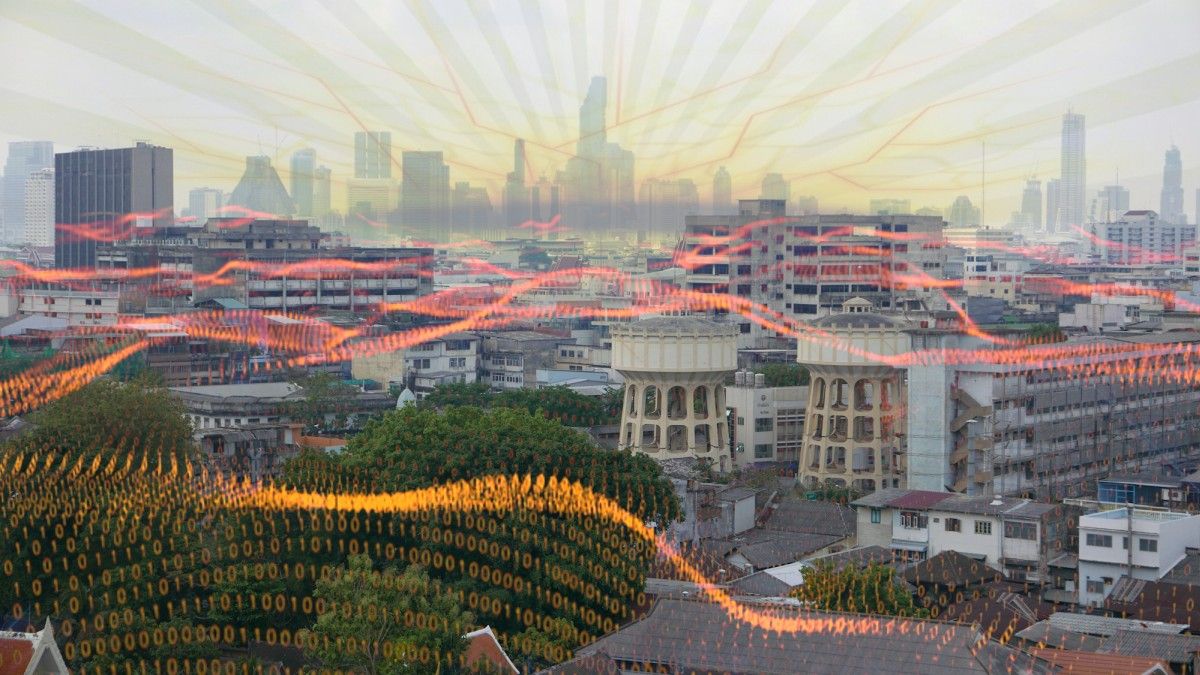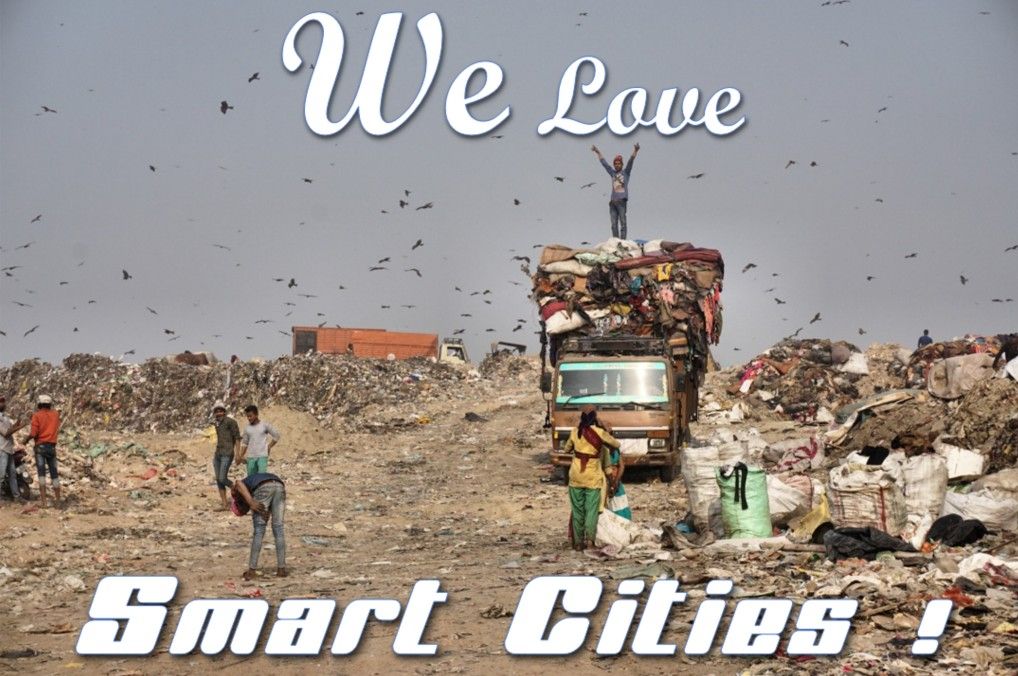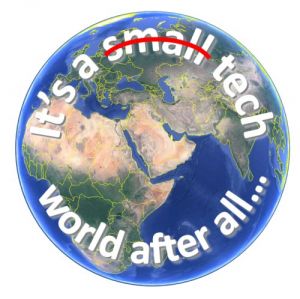Years ago, the term “Greenwashing” was mainly used by sensitive environmentalists. Lately, the term has become widely familiar, and many people are aware of PR and marketing tricks used to promote an illusive perception as if a product, service or policy are environmentally friendly.
Lately, quickly but surely, we enter a new “washing” era – “Technology washing“, or just “Techwashing“. As we shall see, large organizations, which have a crucial impact on our lives, adopt it happily.
It’s no secret we are surrounded by technology, especially personal computerized devices. Such off the shelf products are effortlessly adopted by people all around the world, making our immediate virtual environment more convenient and connected. But what about our broader, physical living habitat and our lives within it?
Let’s examine the issue through the urban environment. The city is one of the most complex systems mankind has created. It is an intricate system of products and services, and its users constantly affect and alter it. Therefore, municipalities have a demanding task – taking care of our lives in the city. From physical infrastructure to health, education and entertainment. They have to deal with huge projects as well as with individual souls. They may create life-changing improvements, but eventually, on a daily basis, they must handle shit. Literally. And most of the municipalities do not like it. They might find it difficult to solve complex problems. And sometimes they make us feel as if they prefer to let sleeping dogs (and people) lie. This of course leaves residents unsatisfied and mayors concerned – it might be a problem on the upcoming elections.
But lately they have a savior. “Techwashing”. Municipal executives were among the early adopters of “Techwashing”: “…People are surrounded by technology, so they probably love technology… Let’s give them what they want – a technological city. A Smart City!” Thus, a subset of “Techwashing” was born – “Smartwashing“. With the loyal help of technology companies which constantly generate new markets and educate new customers, “Smart Cities” became the urban buzzword of the era.
So what do we have here? Public WiFi spots? Sensors in garbage containers? Surveillance cameras? Auto-dimming LED street lights?
What about us? Will it improve the actual quality of our lives in the city? Will we be able to walk on convenient sidewalks without obstacles? Will we be able to buy bread or fresh vegetables without the need to drive our car? Will our children have access to good education and extracurricular activities a walking distance from home?
Let me tell you this: any municipality which howls “smart city”, already uses technology. It is used to send you bills and charge fines. You know what? Even to manage a computerized hotline where you can report problems. Most municipalities also have wonderful data analysis divisions. They get lots of data from various municipal departments and turn it to useful information. Municipalities also have planning teams and advisors. They have wonderful ideas and solutions.
The big issue is, what is actually done with all this information? What management decisions are made? How does the whole municipal orchestra play by the information notes and conducted in light of the strategy and solutions provided? Unfortunately, many municipalities all over the world are huge organizations, where politics, overly-complicated bureaucracy, and monstrous building laws are impenetrable walls.
A large municipality executive once told me: “We do not know how to do matrix management. Try to do it and you shall wish you had jumped off a cliff”. A known mayor unofficially declared himself the city architect and decided that all designs – from signs to residential buildings – should get his approval. Another mayor neglected a whole neighborhood because he didn’t like its head of residence committee. Many municipalities plan projects without any transparency to residents.
Smart City is first and foremost smart management. To do smart management you do not have to install any sensors or applications. You need people who make smart decisions in key positions. You need smart procedures that will make bureaucracy an advantage rather than a barrier.
Are municipalities ready to make a brave step and undergo a true revolution? One which will eliminate blown-up bureaucracy which encourages corruption? One which will render municipal processes transparent to the public? One which will enable to actually sense individual residents rather than their garbage?
Now let’s look at the technological entities involved. From small startups to the largest corporations, numerous organizations now wish to grab a share in this emerging bonanza. But “Smart” technologies and “Techwashing” are all around us. From making us believe that autonomous vehicles will solve all transportation problems, to “Solving All the Wrong Problems”. Not to mention leaving out of the equation large portions of world population, from the “Unexotic Underclass” to the hundreds of millions of people rushing to growing megacities in developing countries, most of them lacking basic life necessities.
“Innovation” is not enough here. Entrepreneurs and developers cannot sit in stylish offices and come up with “top down” new sterile solutions detached from complex reality. It is evolution that should be done, “bottom up”, by carefully upgrading real existing environments. Each place has its unique characteristics. Rather than forcing a top-down generic solution, positive characteristics should be enhanced and leveraged while problematic issues should be solved.
A lively area in Delhi. Unique characteristics of a place must be preserved, while tailored solutions to problems are provided
Henry David Thoreau once said that “Men have become the tools of their tools”. Nowadays it is a common practice to see technology as an aim rather than a means. We should not strive for “smart cities” but rather for “great cities for people”.
Many cities in the world prove that an attractive and prosperous urban environment can be provided to people without any high-tech extravaganza involved.
Copenhagen – a pedestrians and cyclists heaven, in an inspiring planned and designed environment.
So don’t cheat us with “Techwashing”. Forget about “Smart City” solutions sparing the need to cope with true problems. Rather give us stupid but functioning cities. We shall do the rest.
Did you encounter any “techwashing” or “smartwashing” cases?
Share your examples in the comments below!



Leave a Reply